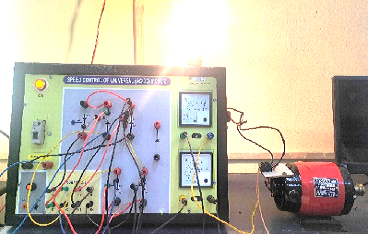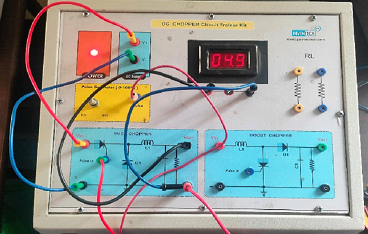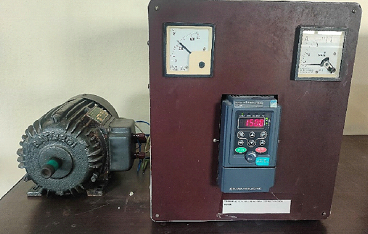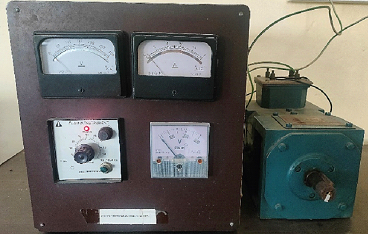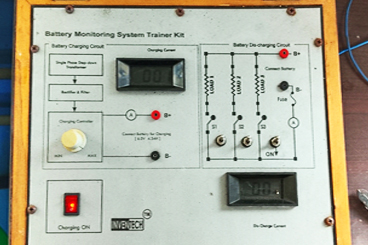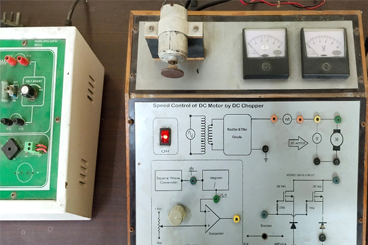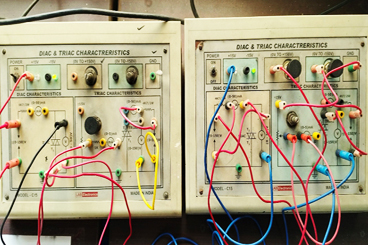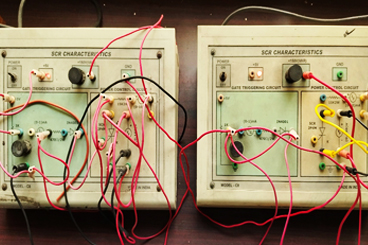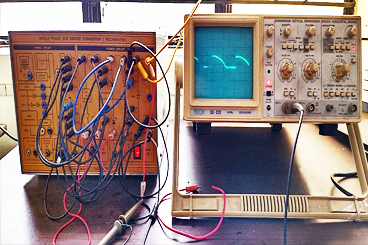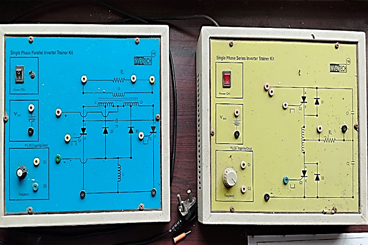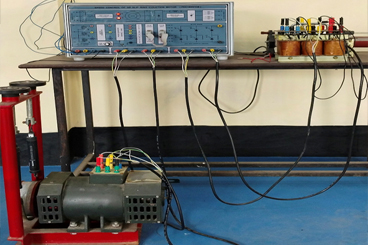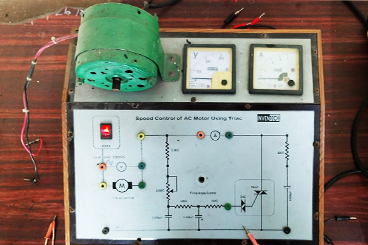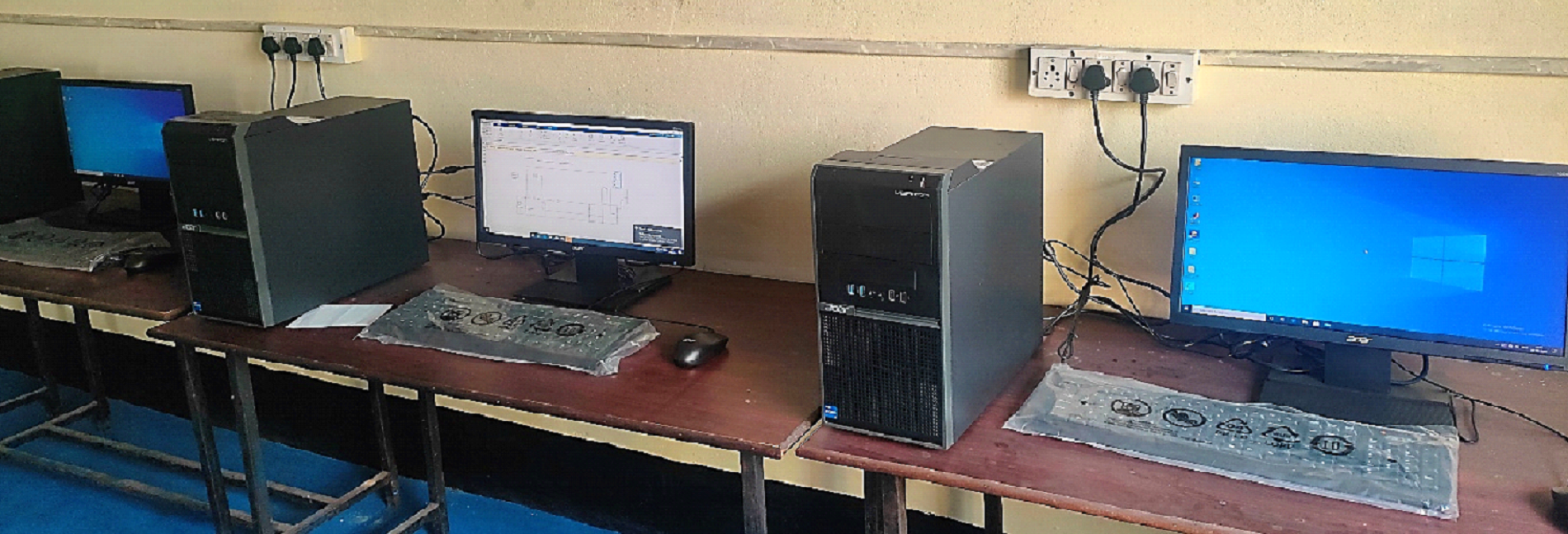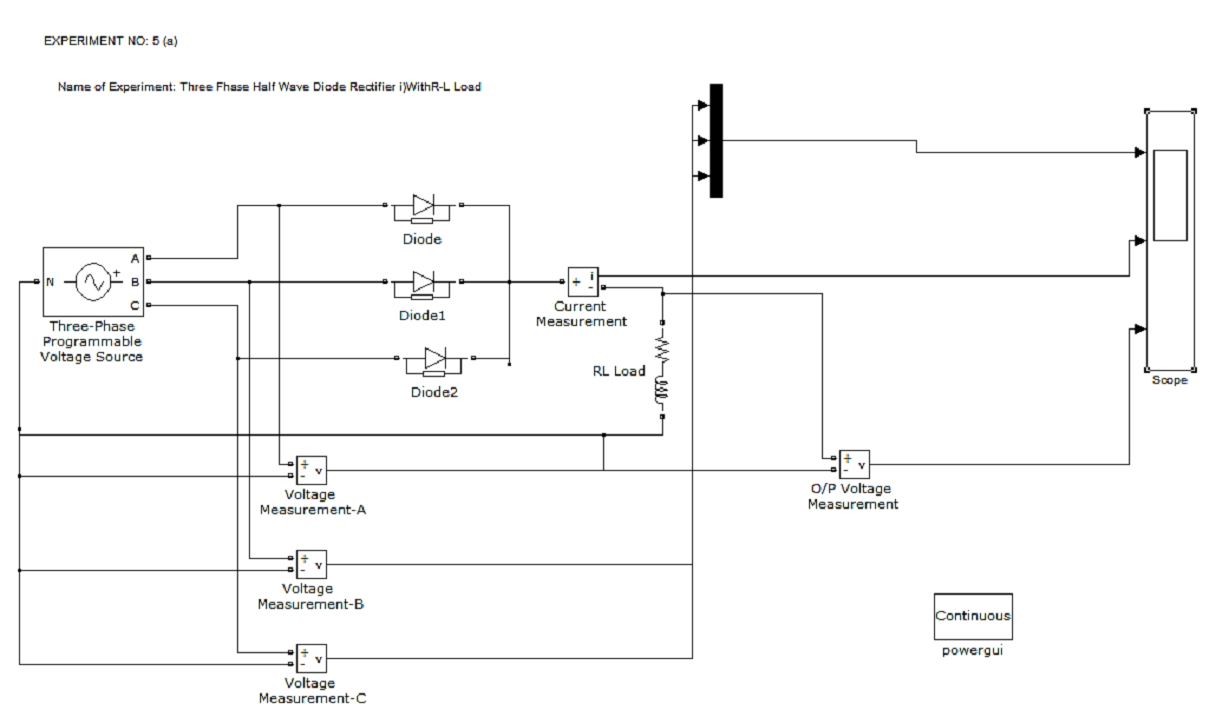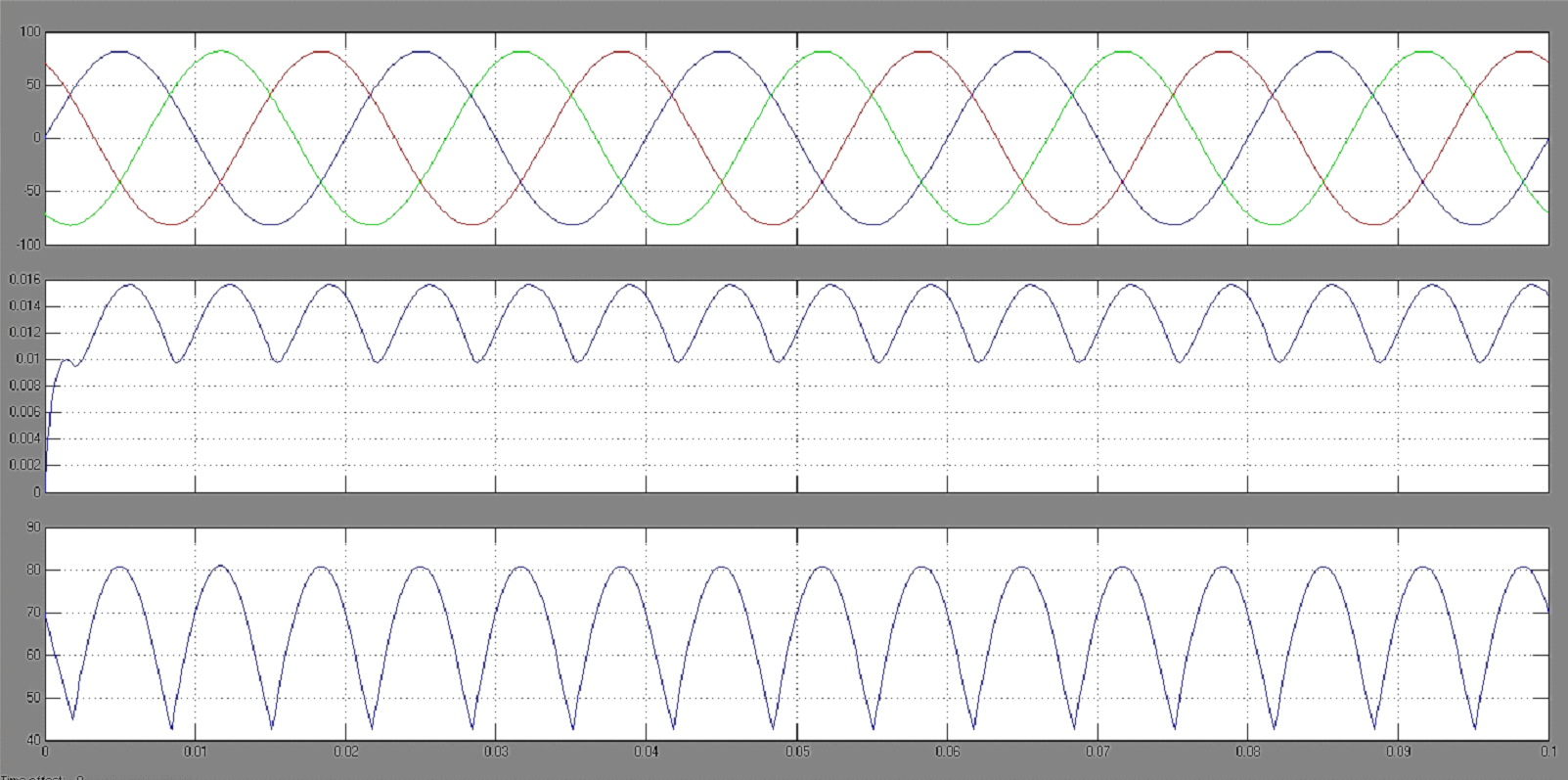| DEPARTMENT |
NAME OF THE SUBJECT WITH COURSE CODE |
SYLLABUS (NEW/OLD) |
YEAR & SEMESTER |
| EE |
Power Electronics Lab (PC-EE-594) |
NEW |
3rd year 5th Sem (UG) |
| EE |
Electric Drives Lab (PC-EE-791) |
NEW |
4th Year 7th Sem (UG) |
Objective:
The objective of a Power Electronics and Drives laboratory is to provide students with hands-on experience and practical understanding of the concepts learned in the theoretical aspects of power electronics and electric drives.The Power Electronics and Drives laboratory aims to provide students with practical experience to reinforce theoretical knowledge, develop design and troubleshooting skills, validate concepts through experimentation, ensure safety awareness, engage in project work, and integrate industry-standard practices, ultimately preparing them for success in power electronics, electric drives, and related fields.
To the understanding and application of power electronics and drives through innovative research, experimentation, and practical education in the Electrical Engineering Department. Our laboratory serves as a pivotal hub for conducting cutting-edge research and facilitating hands-on learning experiences for B.Tech students, equipping them with the knowledge and skills necessary to address contemporary challenges in power electronics and drives. Through collaborative projects and comprehensive practical sessions, we aim to foster a culture of exploration, discovery, and excellence in the field, ultimately contributing to the advancement of both academia and industry.
To research and innovation in power electronics and drives through comprehensive experimentation and analysis in a state-of-the-art laboratory equipped with high-tech computing resources.
This laboratory aims to:
- • Conduct cutting-edge research in power electronics and drives, exploring novel techniques and methodologies to enhance efficiency, reliability, and performance in electrical systems.
- • Provide a platform for students and researchers to gain hands-on experience in designing, simulating, and implementing power electronic circuits and drive systems.
Some specific objectives include:
- Understanding Concepts: Reinforcing theoretical knowledge by applying it to practical scenarios, helping students understand the fundamental concepts of power electronics and electric drives.
- Skill Development: Developing practical skills in designing, analysing, and implementing power electronic circuits and electric drives systems.
- Experimental Validation: Validating theoretical concepts through experimentation, allowing students to observe real-world behaviours and phenomena in power electronic circuits and electric drives.
- Troubleshooting: Developing problem-solving abilities by troubleshooting and diagnosing faults in power electronic circuits and electric drives systems.
- Safety Awareness: Instilling a strong sense of safety protocols and practices when working with high-power electronic devices and circuits.
- Project Work: Providing opportunities for students to work on projects that involve the design, simulation, and implementation of power electronic converters and electric drives systems.
- Integration with Industry: Bridging the gap between academia and industry by exposing students to state-of-theart equipment and technologies used in power electronics and electric drives applications.
Overall, the Power Electronics and Drives laboratory aims to equip students with the practical skills and knowledge necessary to excel in the field of power electronics, electric drives, renewable energy systems, and related areas.
Experiments Perform in this Laboratory:
Power Electronics Lab (PC-EE-594)
- Study of the characteristics of an SCR.
- Study of the characteristics of a Triac.
- Study of different triggering circuits of an SCR
- Study of firing circuits suitable for triggering SCR in a single phase full controlled bridge.
- Study of the operation of a single phase full controlled bridge converter with R and R-L load
- Study of performance of single-phase half controlled symmetrical and asymmetrical bridge converters.
- Study of performance of step-down chopper with R and R-L load.
- Study of performance of single-phase controlled converter with and without source inductance (simulation)
- Study of performance of step up and step-down chopper with MOSFET, IGBT and GTO as switch (simulation)
- Study of performance of single-phase half controlled symmetrical and asymmetrical bridge converter. (simulation)
- Study of performance of three phase-controlled converter with R & R-L load. (simulation)
- Study of performance of PWM bridge inverter using MOSFET as switch with R and R-L load.
- Study of Zero Voltage Switching Resonant converter and Zero Current Switching Resonant Converter and to plot its output waveforms.
- Study the speed control of universal motor to plot speed v/s α
- Along with the above experiments, beyond university Syllabus experiments also perform in this lab.
Course outcome: After completion of this course, the learners will
- • Identify appropriate equipment and instruments for the experiment.
- • Test the instrument for application to the experiment.
- • Construct circuits with appropriate instruments and safety precautions.
- • Validate characteristics of SCR, Triac, and performance of phase-controlled Converter, DC-DC converter, inverters and resonant pulse converters.
- • Demonstrate the relation between the speed and firing angle of Universal motor
- • Work effectively in a team.
Electric Drives Lab (PC-EE-791)
- Study of speed control of Thyristor controlled DC Drive.
- Study of speed control of Chopper fed DC Drive.
- Study of speed control of single-phase motor using TRIAC.
- Study of PWM Inverter fed 3 Phase Induction Motor control using software.
- Study of VSI / CSI fed Induction motor Drive using software.
- Study of V/f control of 3phase Induction motor drive.
- Study of permanent magnet synchronous motor drive fed by PWM Inverter using Software.
- Study of Regenerative / Dynamic braking operation for DC Motor - Study using software.
- Study of Regenerative / Dynamic braking operation of AC motor - study using software
- Study of PC/PLC based AC/DC motor control operation.
- Along with the above experiments, beyond university Syllabus experiments also perform in this lab.
Course outcome: After completion of this course, the learners will
- • Identify appropriate equipment and instruments for the experiment.
- • Test the instrument for application to the experiment.
- • Construct circuits with appropriate instruments and safety precautions.
- • Apply different methods of control of Electric Drive in the laboratory.
- • Analyse experimental data obtained in the laboratory.
- • Work effectively in a team.
Major Facilities available in this laboratory:
- Power electronics elements trainer kit
- Thyristor Bridge converter with Resistive and Inductive load.
- Power electronics design trainer kit.
- Inverter trainer kit
- UPS and battery charging circuit trainer kit.
- Thyristor based DC Motor Controller with 1hp DC Motor
- Chopper control with DC Motor load.
- AC controller with Motor load. (Triac Based)
- V/F controller with 1hp three phase Induction Motor.
- Drive module based on Slip power recovery scheme with Slip-ring Induction Motor
- Cathode Ray Oscilloscope
- Simulation Platform with MATLAB and PSIM software.
Major Software’s available in this laboratory:
